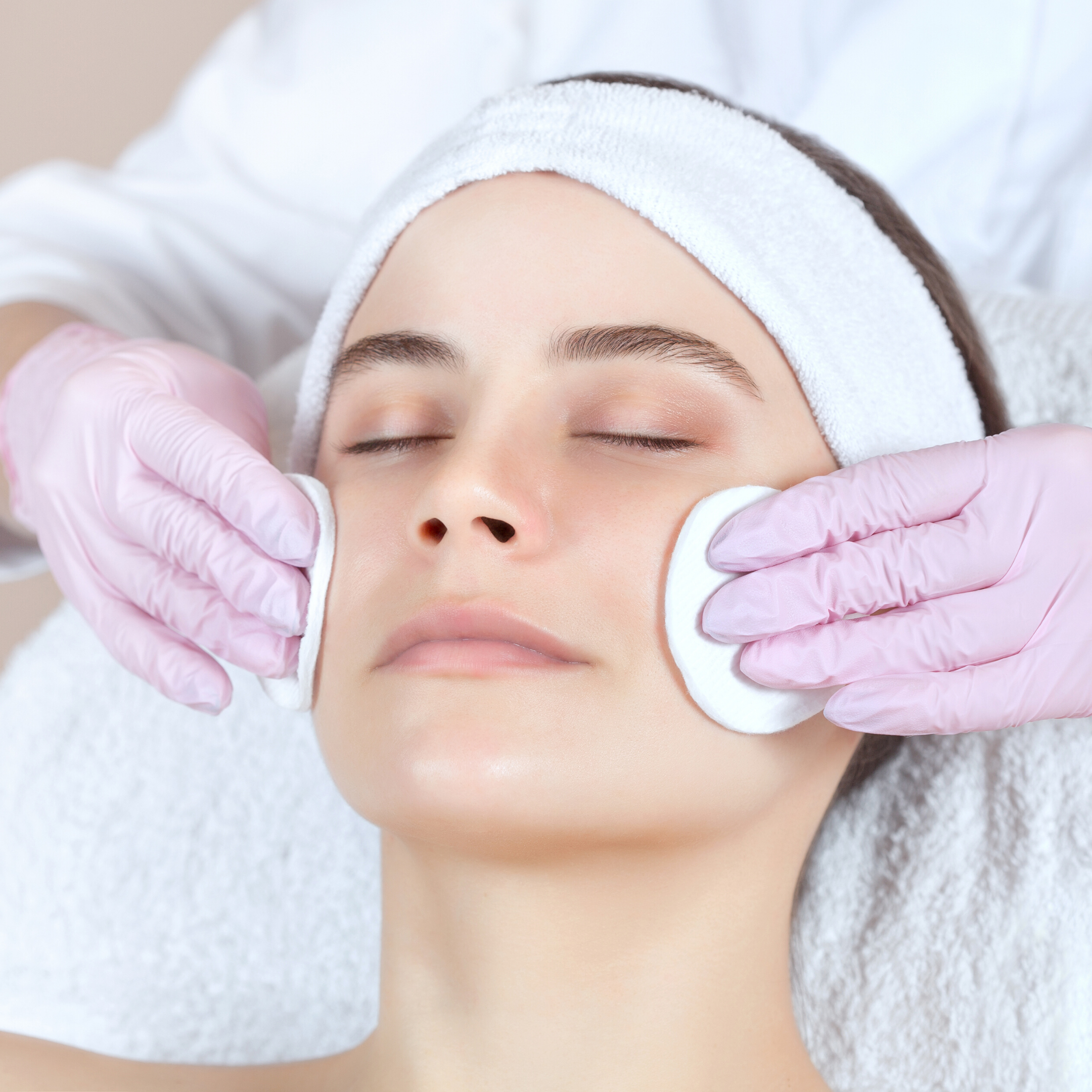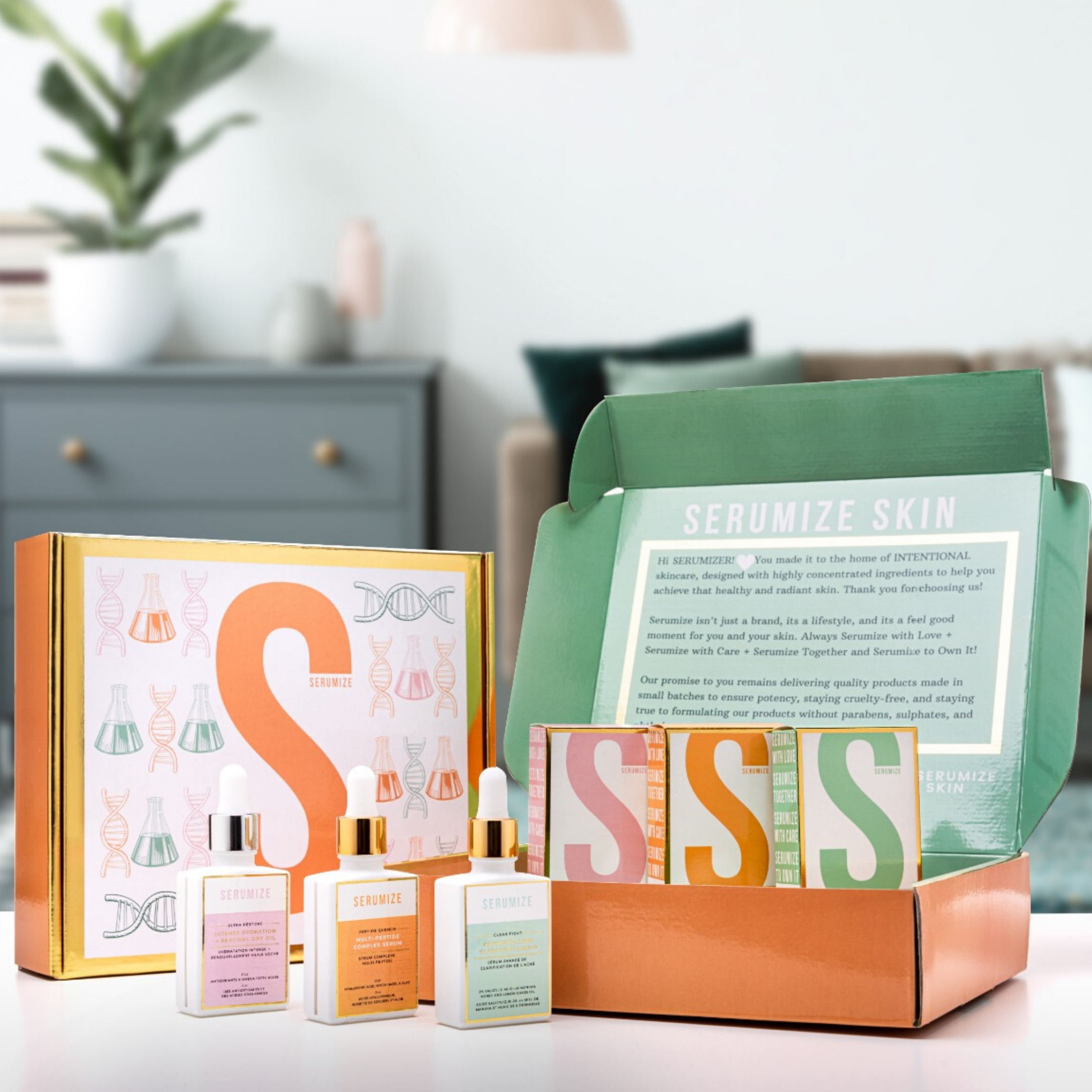It's a familiar story. You finally get a skincare product you've been wanting for a while. You slather it on, and the next thing you know you get a mild break out or lots of redness and tingling. Adverse reactions to skincare can include redness, itching, dried-out skin, tingling and even breakouts. We'd like this to never happen again, so here is a guide to preventing adverse reactions to skincare.
How Can You Prevent Reactions To Skin Care?
-
Patch test: Before applying a new skincare product all over your face, it's a good idea to do a patch test first. Apply a small amount of the product on your inner wrist or behind your ear and wait 24-48 hours to see if you have any adverse reactions.
-
Read the label: Always read the ingredients list carefully before using a new product. Look out for ingredients you have reacted to or are known to be irritating or allergenic.
-
Start slowly: When trying out a new product, start by using it once or twice a week and gradually increase the frequency as your skin gets used to it.
-
Avoid using too many products at once: Using too many products at once can overload your skin and increase the risk of reactions. Stick to a simple skincare routine with just a few key products.
-
Choose products for your skin type: Use products that are specifically formulated for your skin type. For example, if you have oily skin, avoid heavy creams that may clog your pores.
-
Stay hydrated: Drinking plenty of water can help keep your skin hydrated and healthy, which may reduce the risk of reactions.
-
Seek professional advice: If you have sensitive skin or are prone to reactions, seeking advice from a dermatologist or skincare professional may be helpful before trying out new products. They can recommend products that are less likely to cause reactions and provide advice on how to care for your skin.
What Causes Skin To React To Products?
There are many reasons that skin can become reactive upon contact with new products or after sustained use of them.
The first reason is allergies, the reason we recommend patch tests is that there are thousands of allergies which a person can have. Being allergic to an ingredient in a product is a possibility that could easily be detected by testing out the product on a small patch of skin.
The second reason is having sensitive skin. People with sensitive skin run the risk of adverse reactions tons skin care because their skin is reactive, Many ingredients can set off a reaction. People with sensitive skin need to avoid products with fragrances, harsh exfoliants, and too much active skin care.
Another reason is the overuse of active skin care. It's not news that too much of anything isn't great. That applies to your skin. Using multiple exfoliants, alongside retinol and other active skincare can impair your barrier and create sensitivity in the skin.
The last reason is the presence of known skin irritants. The presence of fragrance or simple alcohol is enough to trigger an adverse reaction. This is why we prefer to formulate our products without such ingredients.
What Do I do When My Skin Reacts to Beauty Products?
We believe the last in, first out rule is ideal when an adverse reaction occurs. The last product to join your routine should be stopped immediately. Most often, that is usually the culprit. You may need to do a patch test to determine if you react adversely to the product itself or if it just doesn't work with other products in your routine.
It is important to also avoid active skin care like exfoliants and retinol to prevent further irritation, Focus on calming the inflammation by using only gentle products with barrier-supporting ingredients like hyaluronic acid, glycerin and peptides. Soothing ingredients like chamomile and aloe vera are also ideal. Our Peptide Quench Serum is perfect for this!



